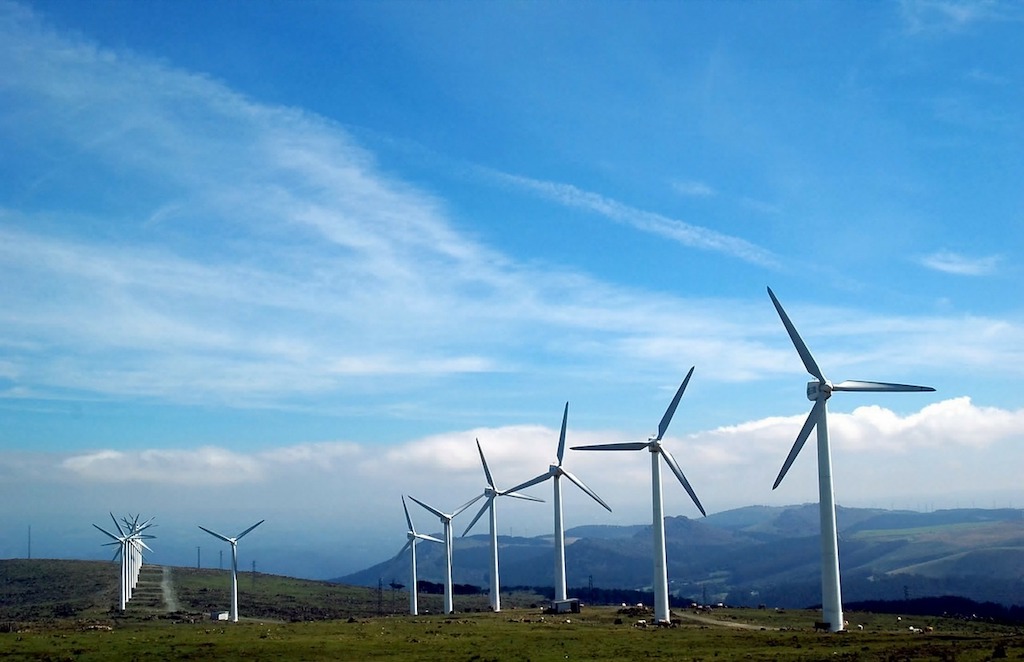Changing Industries
Industry Pivot – How I Switched from One Industry to Another
I’ve made a few changes from one industry to the next and the most challenging and courageous one was leaving the Oil & Gas industry to start working in the Renewable Energy industry. At the end of 2004 I left Shell to join the South African Government as the Director of Renewable Energy.
The career inspirations were as follows:
- I wanted my work to be more meaningful to me – I valued sustainability and wanted to be more authentic by working on finding solutions to the climate change challenge, rather than being part of the problem
- The new role gave me an opportunity to gain some management experience, which was an important development requirement in my career
- The new role was highly influential and would give me very good visibility in the industry
Why did I make the change?
One of the questions I always ask myself, is where is my industry heading? What are the trends and how should I be aligning my career with these changes? At the time I joined Shell the Kyoto Protocol was in full swing. Annex 1 countries were making significant investments in climate change mitigation initiatives and the intensity of activity and focus on renewable energy was intensifying rapidly. The climate change trends were clearly indicating that there was potential for significant changes with alarming consequences. As someone who loves nature I have several concerns: environmental degradation, the loss of natural services (clean air and water, healthy soil microbiology), the loss of biodiversity, and the risk of species extinction. My favourite animal is a tiger, and although climate change is only one of many factors that risk the continued survival of this species and others, I felt that it was one area where I could help make my contribution.
How did I make the change?
Changing industries takes courage and is challenging, to say the least. It’s very easy to get stuck with the mind-set that we are trapped in a ‘catch-22’ or chicken-and-egg scenario in which we feel we don’t have the relevant experience to be able to qualify for a role in the new industry. We can do our best to highlight transferable skills, which is essential, but that alone isn’t enough to make the change. You also need credibility. What can you do to demonstrate that you have sufficient credibility to work in a new industry? What would convince people that you could operate proficiently? In my view credibility requires 3 things: knowledge, experience and relationships. I realised that one way or another I had to find a way to gain sufficient knowledge, relevant experience and establish a network of contacts.
At the time I was doing an MBA and one of the lecturers suggested that it was perfectly plausible to become a subject matter expert in any field with focussed attention, dedication and time. He suggested that when you know more than others in a particular field you are in a position to add value to them. It was a radical idea and it resonated with me. I decided that I would make renewable energy the focus of my MBA assignments and work in every situation where I could make it apply. When we had an assignment on economics, I decided to test how it would apply in the renewable energy industry. Strategy? How does one make strategic renewable energy decisions? Finance? How to financing renewable energy businesses. Operations? How does one optimise the operations of a solar panel manufacturer. Research thesis? “Perceptions and Strategies Influencing the Financing of Growth in the Renewable Energy Industry in South Africa.” If you are interested you can download a copy here. You get the idea.
The other thing I did was look for training opportunities. In addition to general self study through reading, I found a two week renewable energy training course at the Indian Institute of Technology Bombay (IITB in Mumbai), which looked amazing. The course was offered for free as long as I could get myself there. I was working at Shell at the time and spoke to my supervisor about it but he didn’t consider it to be core business and wasn’t prepared to let me go even though it wouldn’t cost him or the organisation anything. Instead I used my vacation time to go. The discussion on my career development also wasn’t beneficial, my supervisor didn’t think I had a much of a chance of moving within Shell to work on Renewable Energy in the Hague.
The mini research thesis was a game changer because it enabled me to interview many influential people in the renewable energy industry and develop some contacts and relationships along the way. One of my fellow-course participants from the trip to India contacted me to let me know that there was a position available in the South African government and suggested that I might be a good candidate for the role. I was delighted at the prospect and jumped at it. It’s a small world in some circles and when I got to the interview the people interviewing me knew about me through others in the industry. My learning curve had been steep but I was able to demonstrate that I had enough relevant knowledge to do the job. The only relevant experience I had was that I had been making biodiesel in my kitchen for about a year and had relatively good technical insight into bioenergy, which turned out to be one of the two main focus areas within the Renewable Energy Directorate. I was elated when they offered me the job.
What did I learn when I made the change?
The learning curve was steep, as it always is when you take on something new. However, by this time in my career I had cultivated an attitude that I wasn’t scared of taking on a challenge, and I trusted that I would be able to figure out what I needed to know to be able to do the job. I had just come through an MBA with flying colours and I was ready to take on the world. My super power was that I could learn things quickly. I believe anyone can learn to learn, and improve their learning ability. I also believe it is the most important skill in any career. Your ability to adjust to change and be resilient in the face of change is your most important life skill. We leave school and university but the truth is that we never stop learning. People who realise this and focus on it do well, especially when it comes to career changes.
I discovered one of my strengths in this role. I really enjoyed networking and connecting people to each other. I would get insight into what one person was working on and take the time to introduce them to someone else I thought they should talk to where there were relevant overlaps in interests or objectives. It was such a privilege to be able to do this and I enjoyed it. I have always found it difficult to network in environments where I am trying to make connections for myself, but networking from the point of view where I had something to offer was much easier. Admittedly it was also much easier because people wanted to talk to me by virtue of my position but I loved the fact that I could be helpful. I was no longer just another tool in the tool box at Sasol. The role was a significant improvement in my career. The biggest challenge I had in this role was something that I didn’t expect. In hindsight, I should have anticipated the risk but I didn’t see it coming and it hit me hard. There was a misalignment between one of my core values and the requirements of the job (but that’s a story for a different post).


Recent Comments